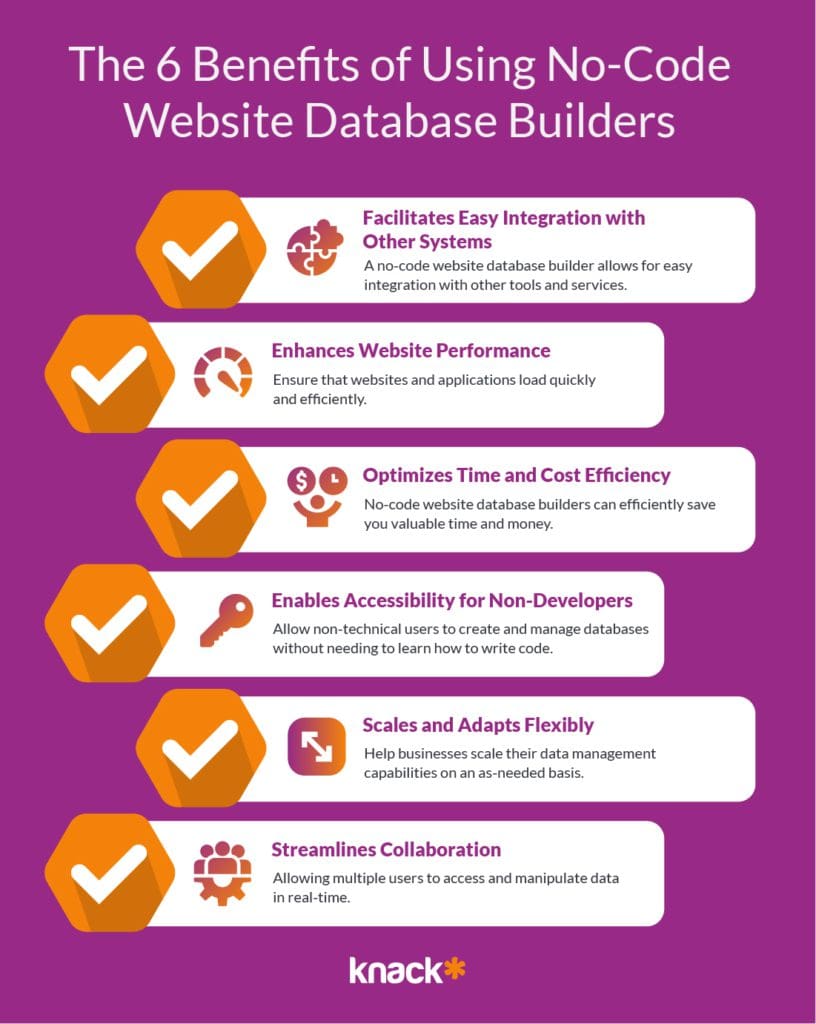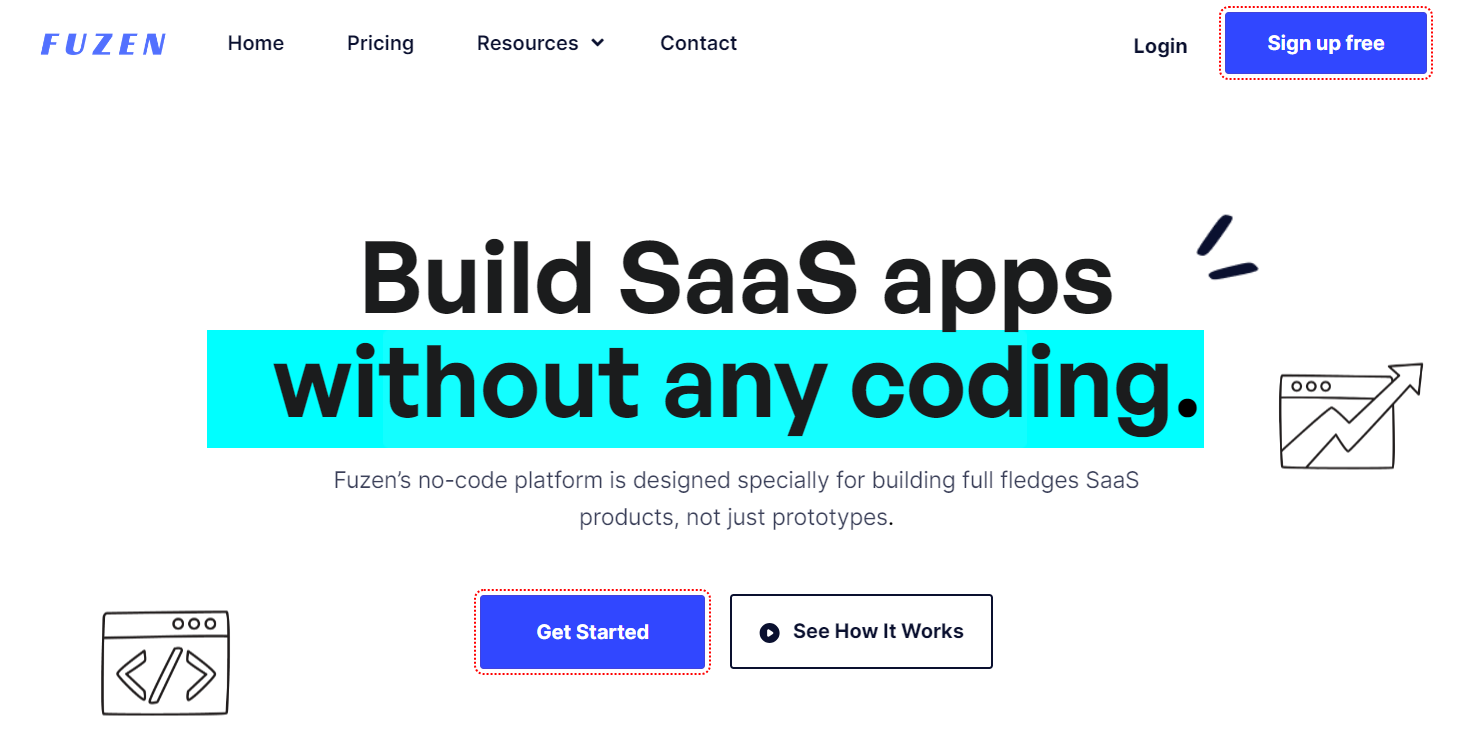No-Code Open Platform Database Creation: Equipping Services to Construct Faster
No-Code Open Platform Database Creation: Equipping Services to Construct Faster
Blog Article
Discovering the Advantages of Scalable Data Sources That Call For No Coding Abilities for Efficient Information Management Solutions
The introduction of scalable data sources that remove the necessity for coding skills presents a transformative chance for companies looking for reliable information monitoring solutions. As we think about the ramifications of such improvements, it comes to be critical to examine how they can reshape the landscape of data management and drive lasting development in an affordable environment.
Improved Accessibility for Individuals
Enhanced access for individuals is a critical facet of scalable data sources, making sure that information monitoring systems are straightforward and instinctive. In a period where data-driven choices are extremely important, access permits a larger range of customers, including those without considerable technical competence, to engage with database systems effectively. This democratization of information accessibility helps with boosted partnership across departments, empowering workers to make and remove understandings notified decisions.
Straightforward interfaces, such as drag-and-drop features and aesthetic data representation, streamline complex information interactions. These improvements minimize the knowing contour connected with traditional data source administration, making it possible for customers to concentrate on leveraging information rather than facing technical intricacies. Moreover, scalable data sources frequently integrate personalized control panels and real-time analytics, providing customers with prompt insights customized to their specific needs.

Cost-Effectiveness and Source Cost Savings
Effective information management not just hinges on access however also on cost-effectiveness and source savings. Scalable databases made for individuals without coding skills significantly minimize financial worries normally connected with standard database administration systems. By eliminating the requirement for specialized programming experience, organizations can allocate their resources extra efficiently, concentrating funds on core company tasks as opposed to extensive training or employing proficient employees.
Furthermore, these data sources typically utilize cloud-based options, which further minimize prices connected to equipment and upkeep. Organizations can scale their data source solutions according to their requirements, staying clear of the expenses incurred from over-provisioning resources. This adaptability suggests services can adjust to transforming needs without sustaining unneeded prices, causing significant long-lasting cost savings.
In addition, easy to use interfaces improve data entry and administration procedures, lowering the moment invested on management jobs. This efficiency translates right into labor price savings, allowing teams to concentrate on critical campaigns instead of regular upkeep. Generally, taking on scalable data sources that need no coding abilities promotes a much more economical strategy to information monitoring, allowing organizations to maximize their resources while maintaining high degrees of functional effectiveness.
Improved Partnership Across Teams

Moreover, scalable data sources promote seamless communication among staff member. With straightforward user interfaces that call for no coding abilities, employees can easily produce, customize, and share reports or control panels customized to their details demands. This democratization of information equips non-technical customers to add understandings, boosting the collaborative environment.
Furthermore, these data sources sustain simultaneous accessibility, permitting numerous customers to service the exact same dataset simultaneously. This feature enhances performance, as groups can participate in joint information evaluation without the danger of version control problems. The capability to leave notes or comments directly within the data source better advertises discussion and clears up data analyses.
Streamlined Information Monitoring Processes
In today's data-driven atmosphere, organizations recognize the necessity of structured information monitoring refines to optimize effectiveness and accuracy. By leveraging scalable data sources that call for no coding abilities, organizations can streamline their data handling and reduce the intricacies commonly related to standard database systems. This accessibility encourages non-technical individuals to engage straight with data, facilitating quicker decision-making and reducing dependence on specialized IT personnel.
Structured data management procedures enhance workflow by automating regular tasks such as information entry, recognition, and coverage. Automated information combination guarantees that details from different resources is aggregated seamlessly, getting rid of silos and fostering a linked sight of crucial organization metrics (no-code). Easy to use user interfaces permit employees to adjust data quickly, enabling them to generate understandings that drive critical campaigns without the need for substantial training.
This performance not only speeds up functional processes yet also lessens the potential for human mistake, making certain that data stays dependable and exact. Eventually, streamlined information monitoring processes with scalable data sources bring about improved performance, allowing companies to concentrate on core tasks while guaranteeing that their information management techniques are reliable and effective.
Scalability for Growing Businesses

For expanding ventures, the capability to scale up or down is vital. A scalable database can deal with an increase of information created from new clients, items, find this or solutions, ensuring that business operations continue to be nonstop. These data sources offer the capacity to handle peak loads successfully, which is vital throughout periods of quick growth or seasonal spikes.
In addition, numerous scalable data source services are made with easy to use interfaces that need no coding abilities, equipping non-technical team to handle data successfully (no-code). This democratization of information administration permits organizations to allot resources purposefully and reduce reliance on specialized IT personnel
Eventually, taking on a scalable database not only boosts operational effectiveness yet also promotes a setting where companies can evolve and introduce without the restraints of traditional database systems. This flexibility placements organizations for long-lasting success in today's competitive landscape.
Conclusion
In conclusion, scalable data sources that need no coding abilities give substantial benefits for reliable information management. By simplifying data management procedures and using scalability for expanding services, such solutions enable companies to adjust to changing demands efficiently.
Improved access for customers is an essential facet of scalable data sources, making sure that information management systems are straightforward and instinctive.User-friendly user interfaces, such as drag-and-drop functions and aesthetic information representation, simplify intricate information communications. Generally, taking on scalable databases that require no coding skills cultivates a much more cost-efficient strategy to information administration, enabling companies to optimize their resources while maintaining high degrees of functional efficiency.
By leveraging scalable databases that require no coding skills, businesses can streamline their data handling and reduce the intricacies normally associated with standard database systems - no-code.Structured information monitoring procedures improve operations by automating regular tasks such as information linked here entry, validation, look here and reporting
Report this page